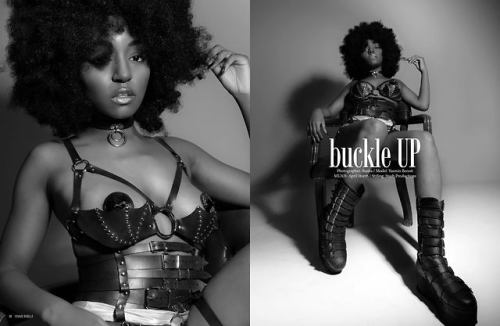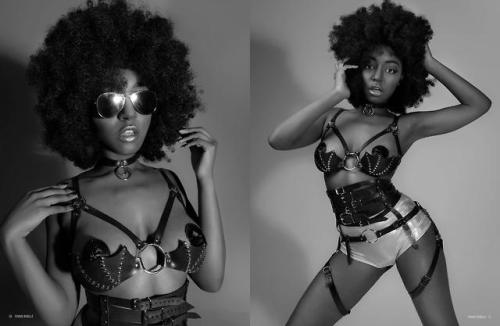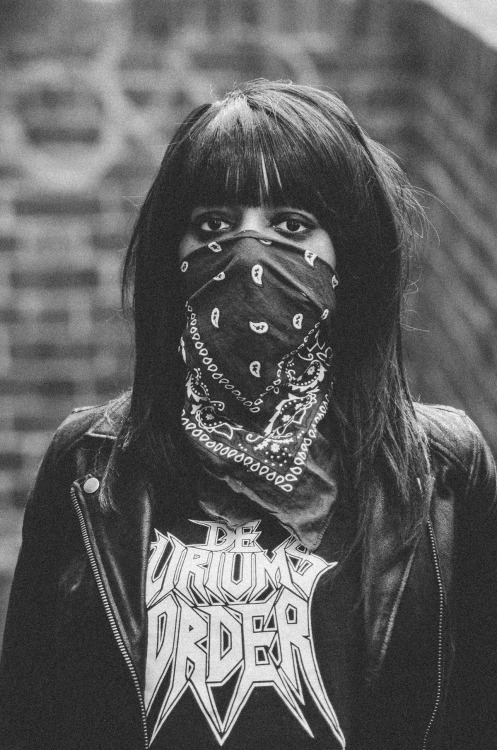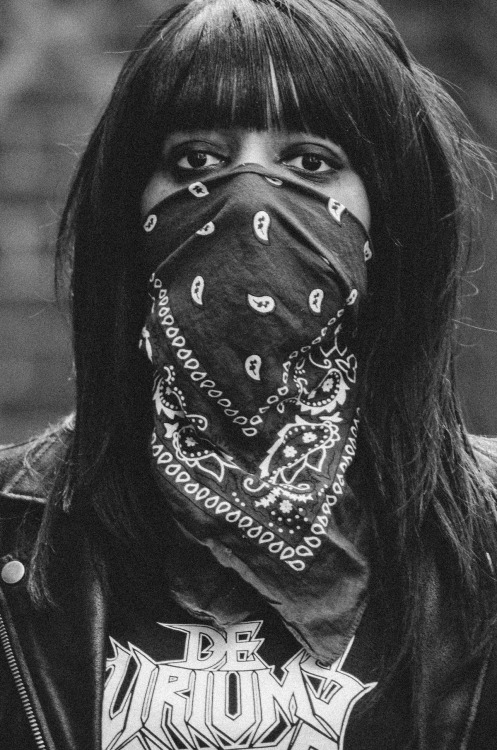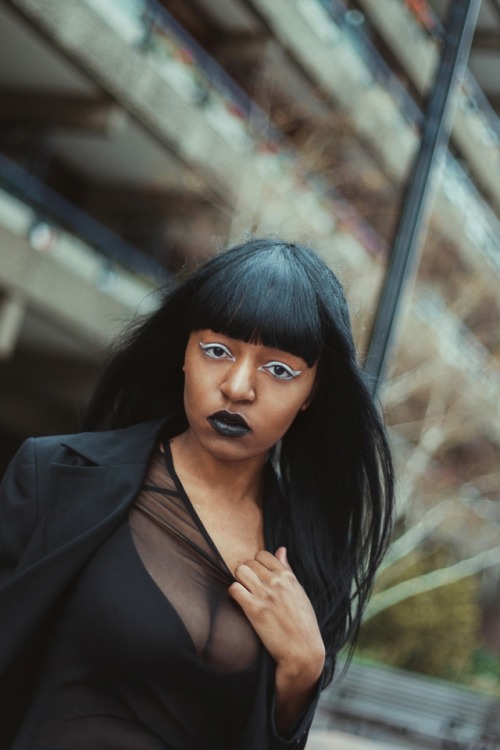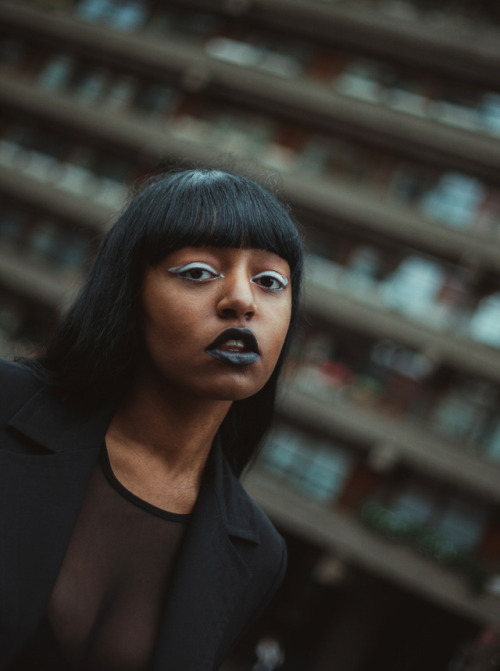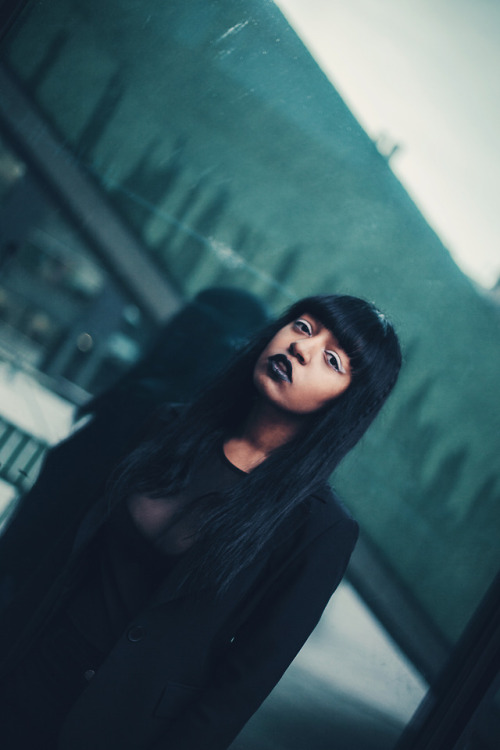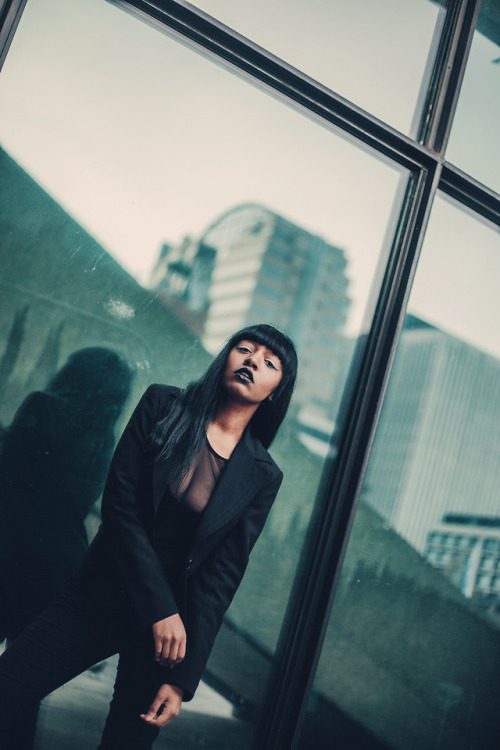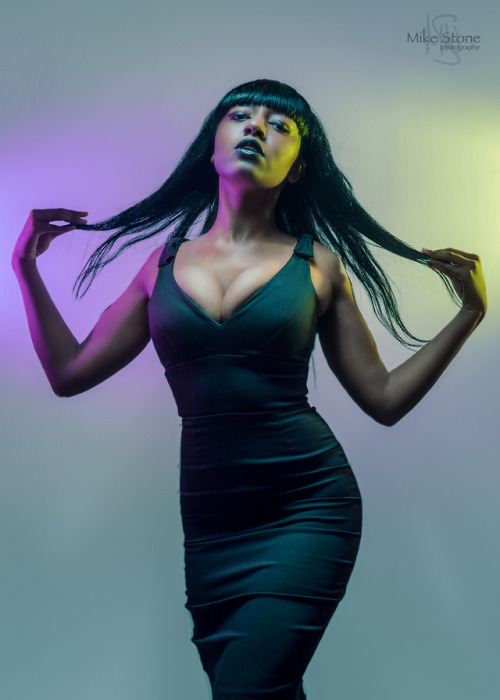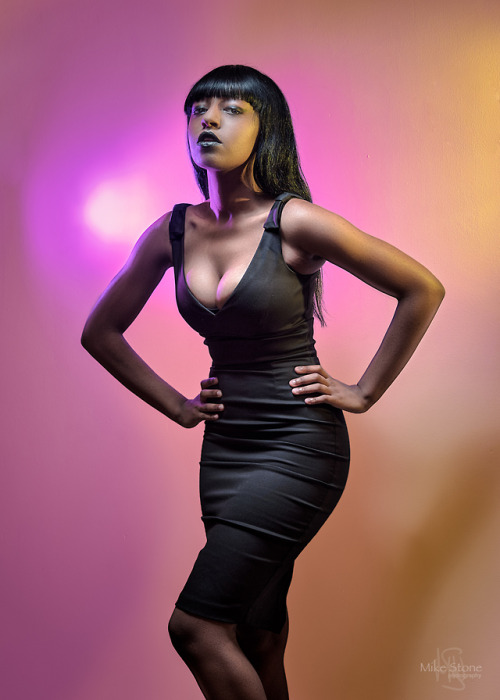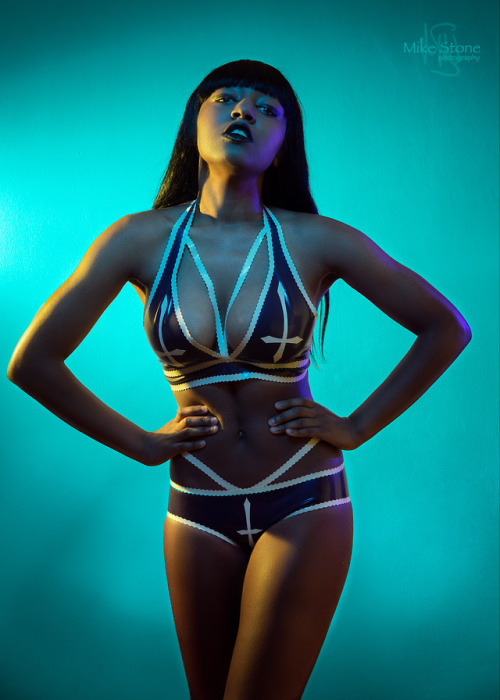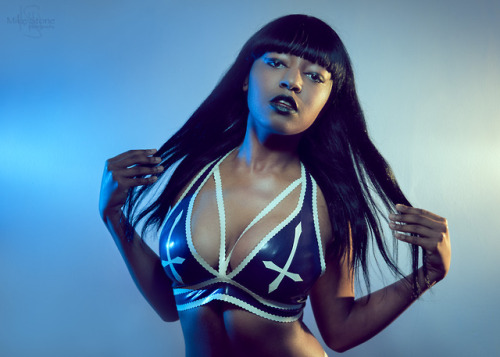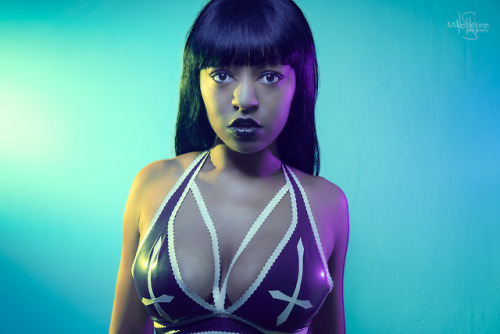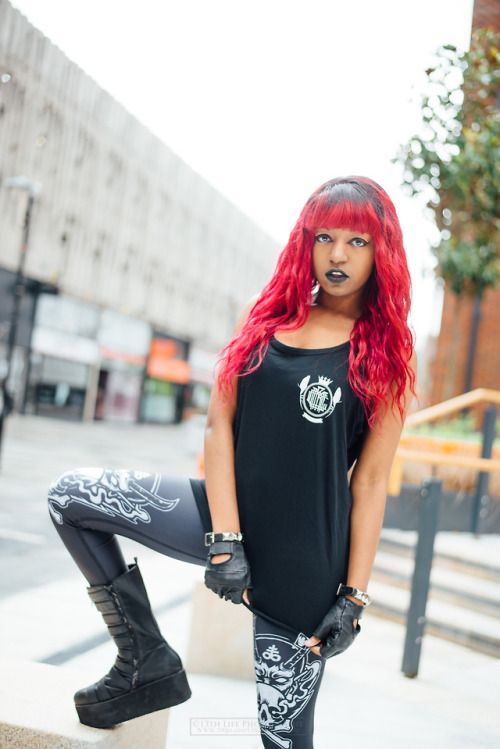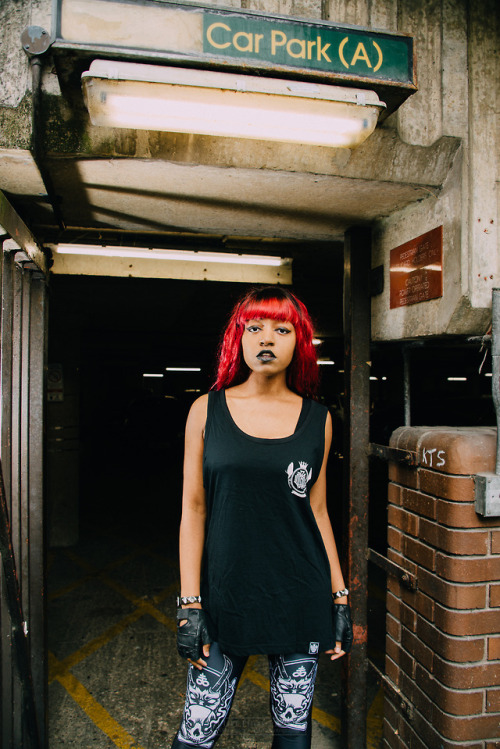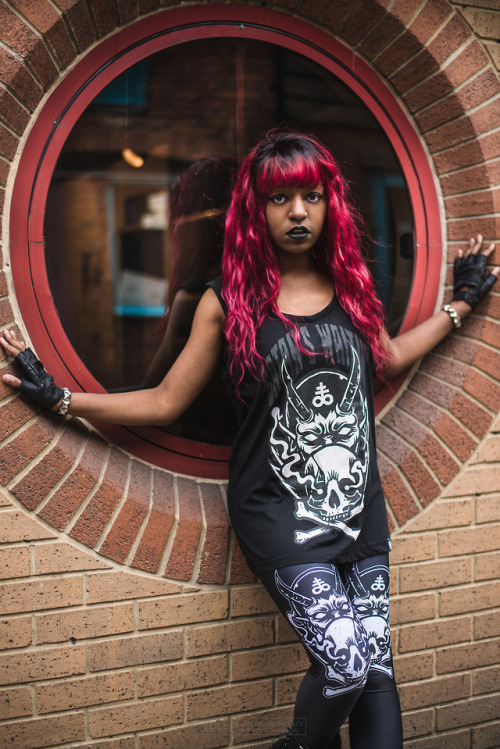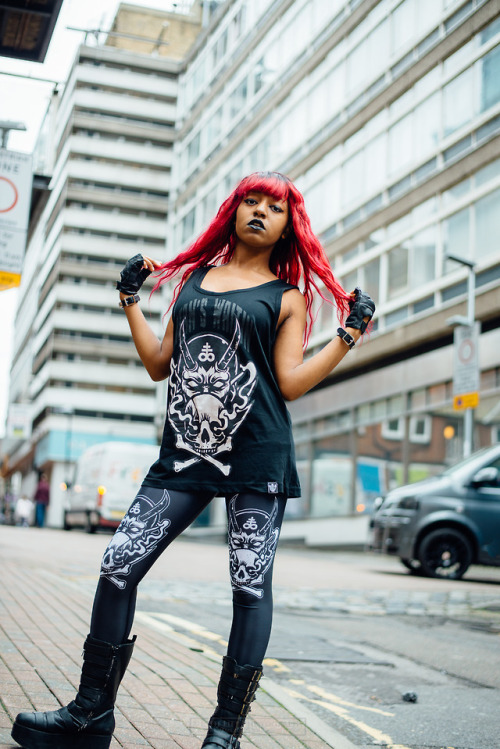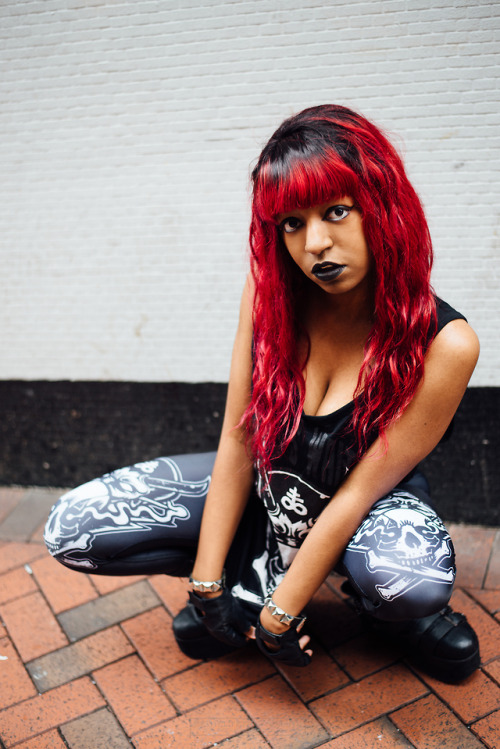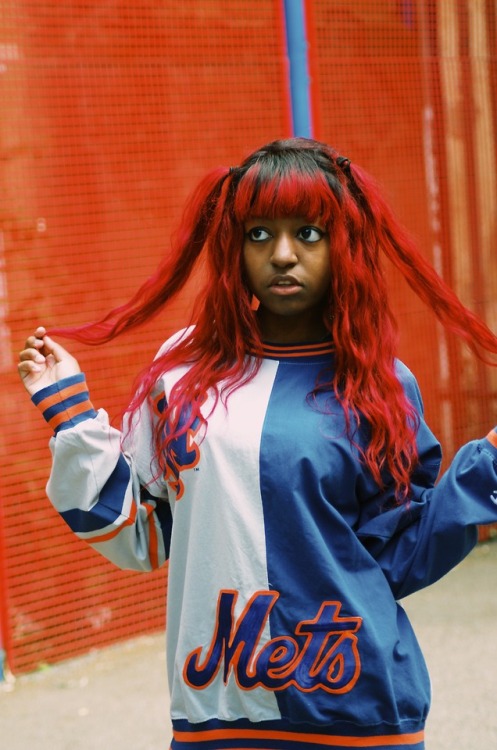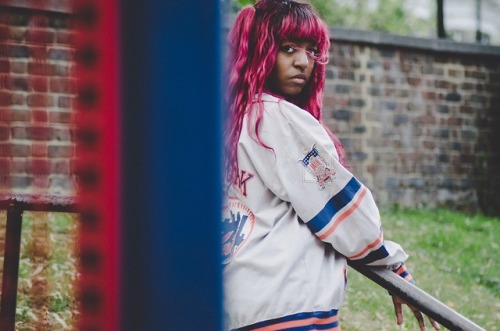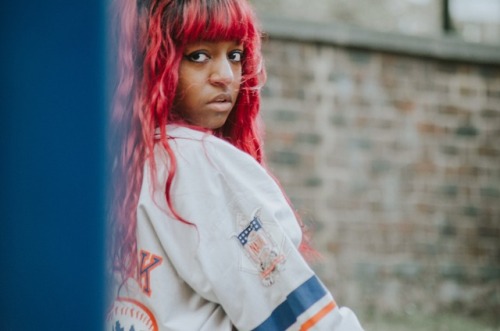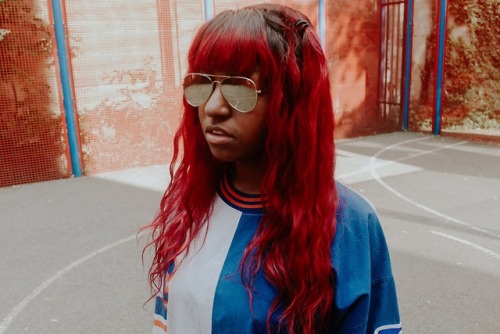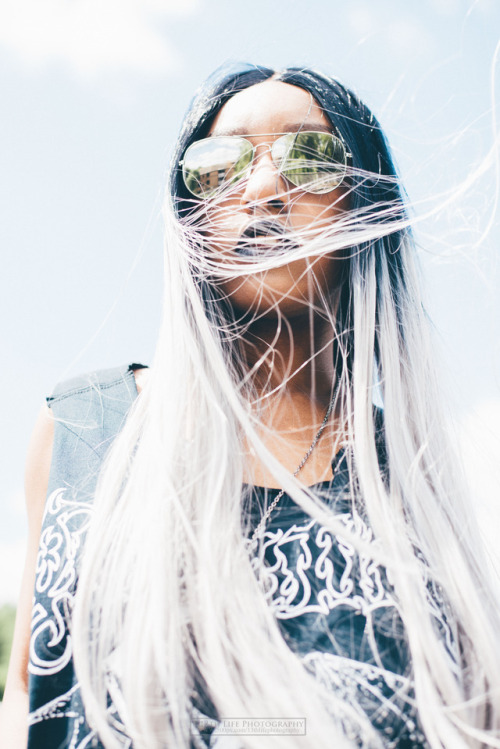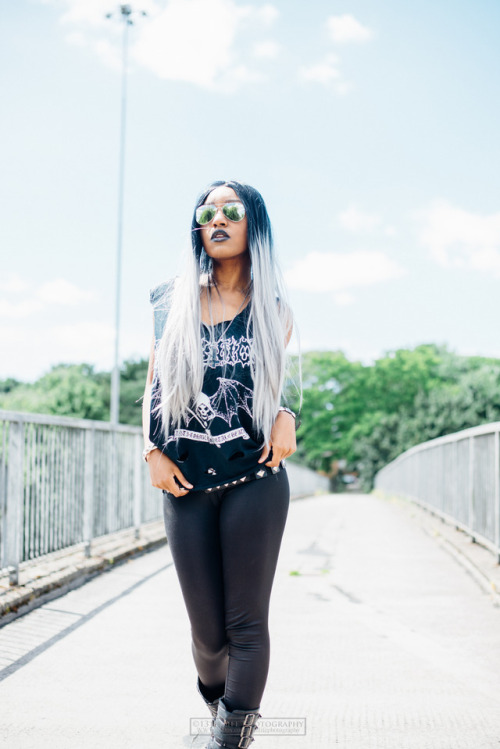#yasmin benoit
Happy Asexual Awareness Week!
In celebration, I filmed another video with Pink News about my experiences as a Black asexual lingerie model and an activist. Our last video was such a hit that we had to do another. There’s also an accompanying article: https://www.pinknews.co.uk/2019/10/20/asexual-lingerie-model-yasmin-benoit-ace-activist/
Thanks everyone for your ongoing support!
This year, I was invited to Prague Pride as a special guest, to speak at two of their events. I had no idea that I had so many fans in the Czech Republic. It was a great step for asexuality visibility and representation at their festival. I’ll forever cherish the experience! Thanks to the organisers for having me, and to all of the people who made me feel so welcome!

The LGBT+ community is made of many different identities, all of which are as valid and important as the others, and every single one deserves to fly their flag with pride.
For Pride 2019, PinkNews has teamed with Uber to tell stories that show how important visibility is to a diverse rainbow of sexual and gender identities.
This is Yasmin’s story…
How do you identify?
I identify as asexual and aromantic. Asexual means you don’t experience sexual attraction or you experience a very low degree of sexual attraction.
It’s a spectrum, so some people do experience it a bit more than others. Aromantic means when you don’t experience romantic attraction either.
When did you first understand what it means to be asexual or aromantic?
I noticed it around the time everyone’s hormones kicked in and boys and girls started to fancy each other. I assumed this would kick in for me but it didn’t and people started to take notice.
It was only when people started questioning me about it, that I had to start working out what was different about me.
Did you know anyone else like you?
The only time I saw people sort of like me represented in the media was bad guys in movies — it’s usually the awkward ones with no social skills who don’t experience sexual attraction.
I couldn’t relate to those characters and the unfortunate thing is that it shaped other people’s views of what asexual and aromantic people must be like, and I had to battle against those stereotypes.
If you don’t experience sexual attraction or romantic attraction, society teaches you that there must be something severely lacking in your mind and in your life.
How important is it for representation at Pride?
There is definitely a lack of asexual representation at Pride. Unfortunately there’s still a debate within the wider queer community about whether we’re supposed to be included, whether the A is for us, and whether we should be at Pride.
So it’s something which needs to be improved.
I definitely still support Pride as it is today and I think in doing that I bring the representation for asexual people that I’ve always wanted to see at Pride.
What does the asexual flag mean to you?
For me, the flag is our unifying symbol. If I ever see that flag flying I know there is someone I can relate to.
It doesn’t matter how old they are, what ethnicity they are, what nationality they are, how long they’ve know they are asexual for or where they are on the spectrum, it’s just a big umbrella for everybody.
This one’s for every student who was made to feel stupid by their teachers and peers, for every kid treated like a lost cause in education. This is a fuck you to everyone who thought I’d never achieve anything like this. Yesterday I graduated with an MSc degree with Merit in Crime Science from UCL, one of the most prestigious and most difficult universities in the world. I’d love to see teachers who kicked me out of class for asking for help, and the students who called me stupid on a daily basis, try that now. After being bullied badly through many of my years in education, it destroyed my confidence and made me believe that I was an idiot. Not only have I proved them wrong, I’ve proved to myself that I’m capable of anything I put my mind to. #ThisIsWhatAsexualLooksLike
Post link
I had the opportunity to bring some aromantic-asexual representation to Uber’s #PrideComesInAllColours campaign! I would have chosen a different quote from our 20 minute interview, but the written version is more informative.
Check out my full interview below:
https://www.pinknews.co.uk/2019/07/11/uber-yasmin/I’m so proud to announce that I’ll be hosting the first ever asexual bar at #PrideInLondon this weekend!
I’ve been working hard with our sponsor Budweiser to make this monumental project happen. We’ve corresponded a lot with AVEN and the ace community to make sure this is something by us, for us. There will be music, a documentary screening, panel discussion, food and drinks, karaoke, games, and of course - cake! ♠️
Get your free tickets to the 2-day event in Soho now! They’re going fast! https://www.eventbrite.co.uk/e/ace-of-clubs-tickets-63391670192
Post link
Next time someone says that ‘aphobia’ isn’t a thing, show them this.
This is why it’s so important to educate people about asexuality. Through my work, I’ve encountered many people who aren’t just ignorant when it came to asexuality, they’re aggressively against it. There are asexual people who don’t want to come out just so that they don’t have to experience remarks like the ones I’m reading out there.
#ThisIsWhatAsexualLooksLike
Model:Yasmin Benoit
Photography: Richard “Busha” Bailey
MUA: April Storm
As seen in Femme Rebelle Magazine
Post link

I’m so proud to announce that I am partnering with Stonewall - Europe’s biggest LGBTQ+ rights organisation - on the Stonewall x Yasmin Benoit #AceProject!
We are going to be conducting research into the issue of asexual discrimination in the UK and putting together a report which will be used to provide a clear set of actions to influence policy and legislation.
It’s time for asexuality to be recognised as a legitimate orientation in the UK and protected as such. It’s time to end the medicalisation of asexuality. We can only do that with research, and we need YOU to be participants! It’s time for ace voices to be heard, so we need you to be loud!
If you’re over 18, based in the UK, and have experienced any degree of asexual discrimination during your time in education, in the workplace or in healthcare, please register your interest in being part of our focus groups: https://www.stonewall.org.uk/stonewall-x-yasmin-benoit-ace-project or email me directly at [email protected]!
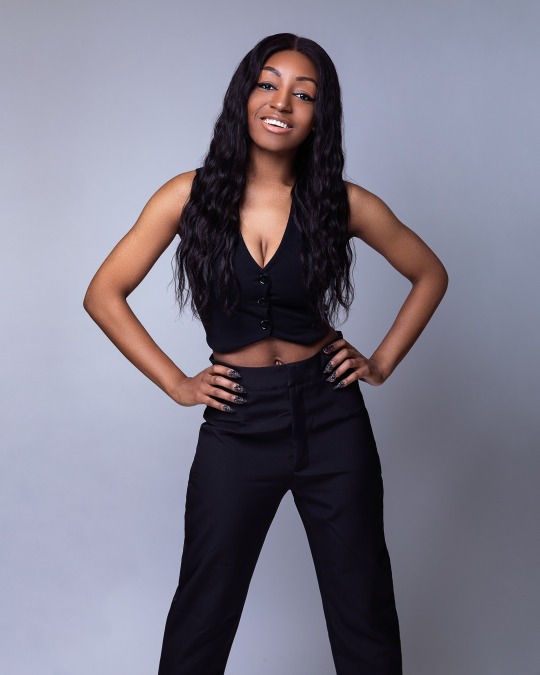
Stonewall are the biggest LGBTQ+ rights organisation in Europe and have been pivotal in the fight for equality, now they’ll be pivotal in protecting the ace community too. It’s an absolute honour to partner with them on this and to be entrusted with such important work. Representation in research and legislation matters too. I’ve always wanted to use my background in social science to contribute to that. Thank you to everyone who has shown their support for the project so far.
If you can’t help, please share this so we can attract more participants and raise awareness for the initiative! It’s time to change the game.
Not gonna lie, I was pretty dang star-struck when I spoke with Yasmin Benoit. She’s an internationally recognised alternative model, academic and LGBTQ+ activist. Yasmin identifies as aro-ace, which is short for aromantic asexual. Through modelling, public speaking, writing and research, she’s shaking up the mainstream perception of these queer identities in massive ways, as well as promoting the visibility of queer people in colour.
U: Hi Yasmin! For those readers who may be less familiar, could you give us a description of what it means to be ‘aro-ace’?
Y: I’m sure you’ll find some people with different meanings, but asexuality is most commonly defined as experiencing little-to-no sexual attraction. Some resources mistakenly say that it’s having no sexuality, or no sexual feelings or desires, but it has nothing to do with that. It’s specifically about experiencing a lack of sexual attraction. It’s a sexual orientation, just one that isn’t really oriented anywhere.
Being aromantic is most commonly defined as experiencing little-to-no romantic attraction. I’ve never been inclined towards romantic relationships, nor do my emotions or connections manifest that way. I place that same energy into platonic relationships. People tend to think that being asexual and aromantic go hand-in-hand, and while it did for me and there is definitely a significant overlap in the communities, there are lots of asexual people who aren’t aromantic and aromantic people who aren’t asexual.
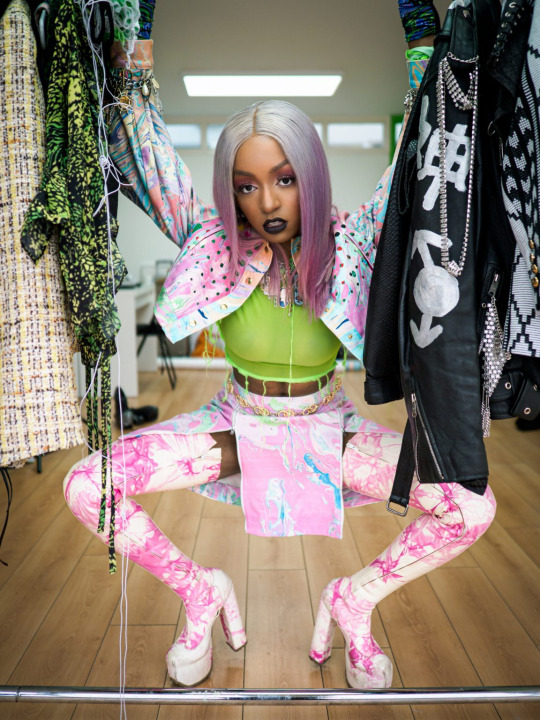
U: You’ve spoken openly about your teenage years, and how friends would ask pretty personal questions about your sexuality before you had discovered the terms ‘asexual’/’aromantic’. Do you think the kinds of questions people ask are shifting now that the terms are more accessible? And if so, how?
Y: Honestly, the questions I get now and the questions I got back then really haven’t changed. The mistakes people make are the same, but since they’re not teenagers, people offline usually aren’t so likely to be as blunt about it. People online, not so much!
Sometimes it seems like asexuality has been caught in some kind of groundhog day.
Like, I can watch interviews that activists did in the media in the early 2000s and the questions they get are the same, albeit delivered in a less politically correct way.
Most people are familiar with the term ‘asexual’ because it’s an old term and it’s been on the outskirts of conversations for decades at least; people just don’t have the inclination or intrigue to look into what it truly means because it’s often treated as an irrelevant aspect of human sexuality. Romantic orientations are still such a new conversation that aromanticism is even further behind asexuality.
U: You’ve achieved a HUGE amount over the course of a few years, from press features to conferences. What is your proudest accomplishment?
Y: It’s quite hard to choose! When you go into things not expecting to achieve much, even the little things feel quite remarkable. If I had to narrow it down, I’d probably say either Prague Pride 2019 or Ace of Clubs in 2019 (that was a good year).
I really like doing the kind of work where I can create in-real-life memories for asexual people in spaces that they wouldn’t usually have.
Prague Pride was my first time working at an international Pride event, I was invited as a special guest and was doing TEDx-style talks and hosting events. It was pretty nerve-wracking doing all of that in a country I’d never been to, so it felt like an achievement that I even managed to pull it off. It was the first time they’d had an asexual special guest and ace-centric events, and it lead to a really big turnout of asexual people and increased our visibility there.
Ace of Clubs was the first ever asexual pop-up bar, which I hosted during London Pride in 2019. It was a two-day event that provided the only asexual space at the entire festival, we had a panel, a projection screen, food, an open bar, music, games… It gave asexual people the chance to meet each other in person – which some had never done before – and party together in a safe space. So I was really proud that I had the chance to bring that to fruition. People still ask me about Ace of Clubs a lot and I still have a lot of lovely supporters in the Czech Republic! Hopefully I can bring the bar back and visit Prague again in the future.

U: You’ve been dubbed the “main face of asexuality.” How does it feel to be called that?
Y: It’s pretty crazy. It isn’t a position I expected to be in and it took me a little too long to realise that people were being serious when they said that! It’s flattering, for sure, if I think of it as recognition for all of the work I’ve been putting in. It’s also quite a lot of pressure, because people are always looking for me to do something incredible and life-changing for everyone. There’s also a lot more eyes on me, regarding what I do, what I say, how I conduct myself, who I work with, what I post etc, which makes it harder for me to just relax and be unguarded as a member of the community. So there’s pros and cons. But it’s an honour to have that kind of recognition and I do my best to use that attention in a way that’s beneficial to the entire community.
U: A focal point of your activism has been to change people’s perceptions of what asexuality looks like through alternative lingerie modelling – which, by the way… ICONIC. You even coined the hashtag #ThisIsWhatAsexualLooksLike. Since you started this journey, what kind of progress have you seen?
Y: Haha, thank you! I like to think there’s been some progress. I think my modelling has allowed me to discuss asexuality in quite sexualised spaces where it wouldn’t usually come up and bring it to the attention of a different audience.
I’ve definitely noticed an increase in asexuality being talked about in sex-positive communities and I’ve been grateful to have the chance to fill that void myself.
The hashtag has really turned into more of a campaign or movement for asexual visibility. It’s become a way for the community to represent themselves without having to rely on the media to do it. It’s been amazing to see it take on a life of its own and be used on so many platforms, including those I don’t use. I think it’s really helped some aces be able to feel more empowered in their self-expression, based on what I’ve heard. It’s also a series that I write for a website called Qwear Fashion, where I interview ace people about their stories and style! It’s on it’s tenth edition now.
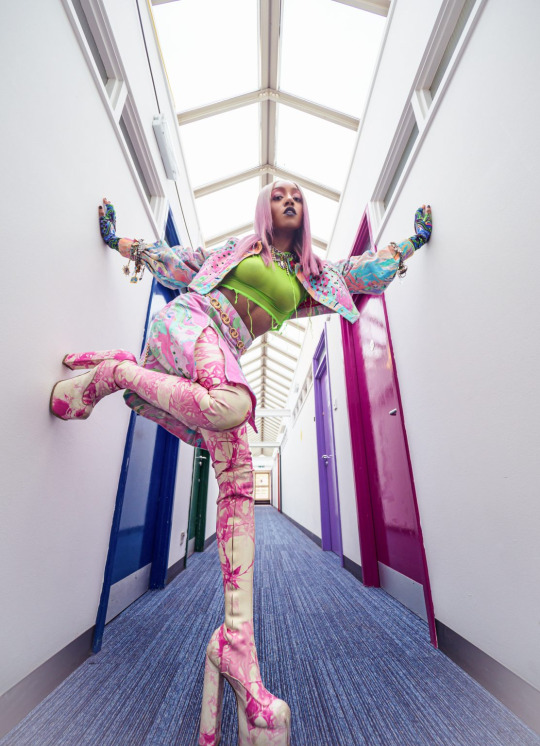
U: What does you-time look like for you? What do you do in your spare time – if you have any spare time?!
Y: When your work isn’t structured in a typical 9-5 way, it can be particularly hard to switch off. Spare time often just feels like time when I should be doing something constructive, whether it’s doing extra work on a project or finally answering my Instagram comments. I’m probably spending it playing far too much Sims 4, reading some history book, going out for something to eat or wandering around a forest in the countryside somewhere. The last one really is a treat.
U: So on top of all the other things you’re doing,you’re also a researcher at California State University. Tell us a bit about the sort of research you’re carrying out and the headway that’s happening there.
Y: There’s a researcher at California State University, San Bernardino conducting research into families and relationships among asexual people, I’m part of the research advisory board and their research team. I do the coding and analysis for the transcribed interviews. I was always interested in the academic side of asexuality activism and I’m definitely hoping to get my name on a research paper someday. This is my way of dipping my toes in. And to anyone reading this and thinking, ‘Why get a model to do research?’ I have an MSc Crime Science degree and a BSc Sociology degree, so it’s actually right up my alley!
U: What advice would you give those who are questioning their sexuality based on your experiences?
Y: I guess first and foremost, I’d say that
sexuality isn’t as black and white as we often think it is.
Every single person’s sexuality is different, multi-layered and fluid to some degree. When we’re talking about our sexual orientation, romantic orientation, desire, libido, arousal, preferences, all of those things – there is no blueprint, despite what we’re taught. There is no typical way to experience sexuality. It’s that idea which makes many queer people – including asexual people – feel like they’re abnormal or missing something.
It’s okay to question your sexuality, in fact, it’s healthy to do that. If you want to analyse it, do that, but through the lens that there isn’t necessarily anything wrong with what you are or aren’t experiencing. And if you find a term that helps you describe what you’re feeling and you want to use it, use it! Don’t worry about having to spend your entire life using it. And if you don’t want to use any terminology or label, don’t. You don’t owe anyone a clear-cut answer and it’s entirely possible to live happily without neatly fitting into any of these preconceived sexuality boxes. I do it all the time.
U: And what does a good aro-ace ally look like? What can they do and say to support the aro-ace community?
Y: Include us in conversations, amplify our voices, support our work and help to normalise our experience! If you’re speaking about sexuality and relationships but you aren’t including asexuality or aromanticism then you’re missing out a significant chunk. The latter includes the least amount of effort and actually makes a huge difference.
U: So… what’s next for Yasmin Benoit?
Y: Depending on when this comes out, I’ve got a considerable line-up of talks, online appearances, and photo shoots scheduled for in-or-around Ace Week!* So that’s what’s immediately next. But the fun thing (and the unsettling thing) about my job is that I never know what’s around the corner! There’s some things that should be coming that I can’t announce yet and some I’m actively working towards, but I don’t want to jinx it. With the support and encouragement of the aro/ace community and our allies, I’m sure there’s good things on the horizon!
https://unicornzine.com/cover/the-face-of-aro-ace-lets-get-to-know-yasmin-benoit/
“At the forefront of the Asexual visibility movement is British Model Yasmin Benoit, who you’ve most likely seen online looking incredible whilst making ace-history. As the creator of #ThisIsWhatAsexualLooksLike, their work often brings light to many asexual misconceptions and shows you that being Asexual doesn’t look just one way. To celebrate Asexual Awareness Week, Yasmin has made history by collaborating with Playful Promises to create the first-ever Asexual theme lingerie campaign!” - Unite UK
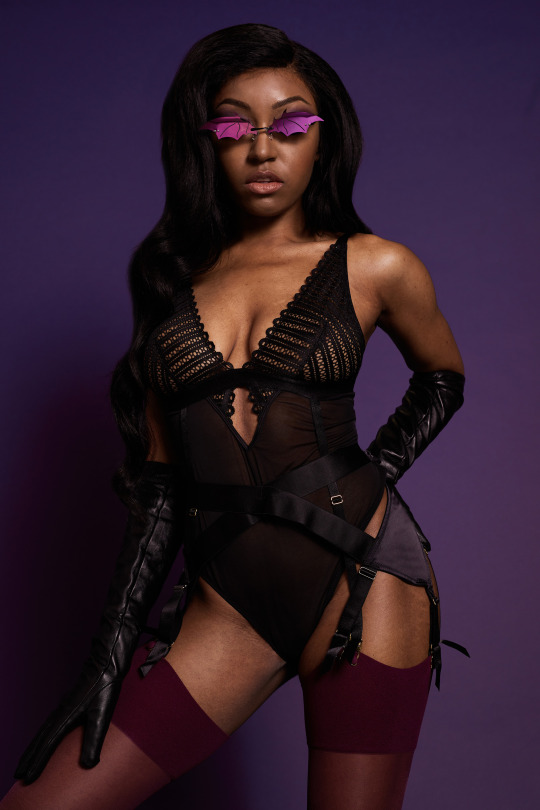
What is a common misconception about asexuality that you wish to debunk?
A common misconception that I try to challenge when incorporating activism into my modelling is this pervasive idea that there’s an asexual way to look or dress. It’s a message I’ve received ever since I started being more open about my asexuality - people would say that I ‘didn’t look asexual.’ Because I was a young Black girl, because people thought I looked nice, because I put some effort into my appearance.
There’s this belief that if you’re not sexually attracted to anyone, then it’s either because you’re sexually unattractive and no one would want you, or you should make yourself sexually unattractive, as not to attract any kind of attention. It can be quite a dangerous mentality, because it means that asexual people looking attractive is somehow extra provocative and trigger more aggression in others. This strange, frumpy asexual stereotype can make asexual people feel like they can’t experiment with fashion and express themselves through it the same way as everyone else can. I don’t think your sexual orientation needs to determine the way you dress.
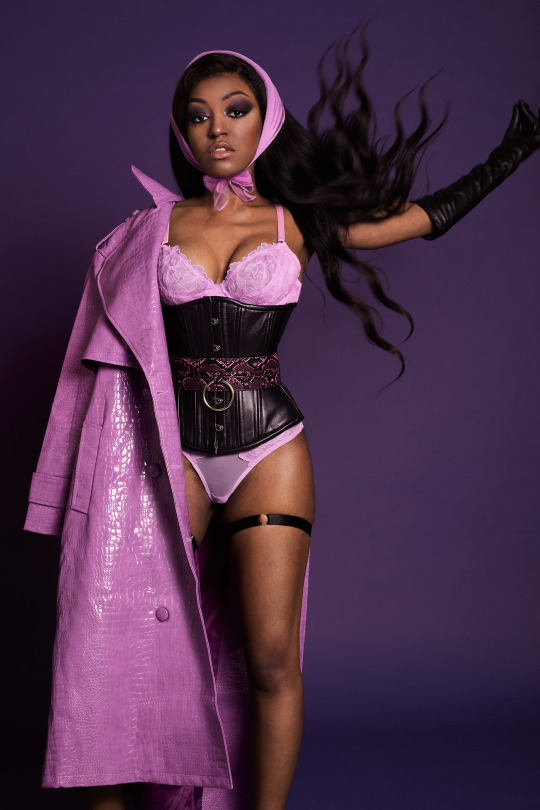
What is the significance of having an asexual lingerie model?
Lingerie is associated with sexuality, it’s seen as being a sex-positive thing and it’s associated with embracing your sexuality. It’s also associated with feeling sexy for other people. I think having an openly asexual model who loves lingerie, but not for sexual reasons, shows the many ways that you can appreciate these kinds of designs. It also includes asexuality within a sex-positive space, which I think is really important, as we’re often left out of those because of the assumption that we have no sexuality, no sexual interests, or that we’re inherently anti-sex.
It’s also really significant for me personally, because queer people - particularly queer racial minorities - are taught to dim parts of ourselves to stay palatable, employable and avoid stigma in our respective industry. Being openly asexual isn’t necessarily going to please everyone or make them want to work with you, it can have the opposite effect. To have the chance to to blend the theme of the asexual flag into the photo shoot for a well-established lingerie brand is amazing. I haven’t seen a lingerie brand ever do that before, so it’s great to be part of a historical moment. I hope it makes other asexual people feel seen and empowered.
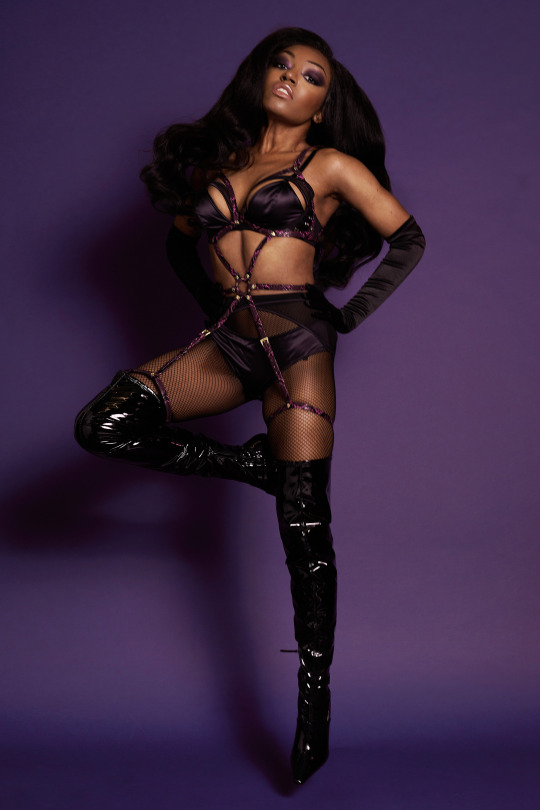
How does lingerie help you express yourself?
I’ve always had quite an unusual style, I don’t like limiting myself to anything. Growing up interested in alternative and gothic subculture, I always saw things like corsets, stockings, big boots and things like that as being integral parts of a cool outfit. I also used to be really into video games and professional wrestling, where the women were always wearing something very akin to lingerie and kicking ass doing it. I guess it made me associate those looks with being powerful, and it was something I wanted to incorporate into my own style. So when I wear it, I feel like I’m channelling that energy. Lingerie is the closest thing you can get to a straight-up superhero outfit without going full Comic-Con. Unfortunately, you can’t walk around every day in lingerie but photo shoots give me the opportunity to experiment with it and feel like I’m capable of back-flip-karate-kicking a giant man out of an arena.
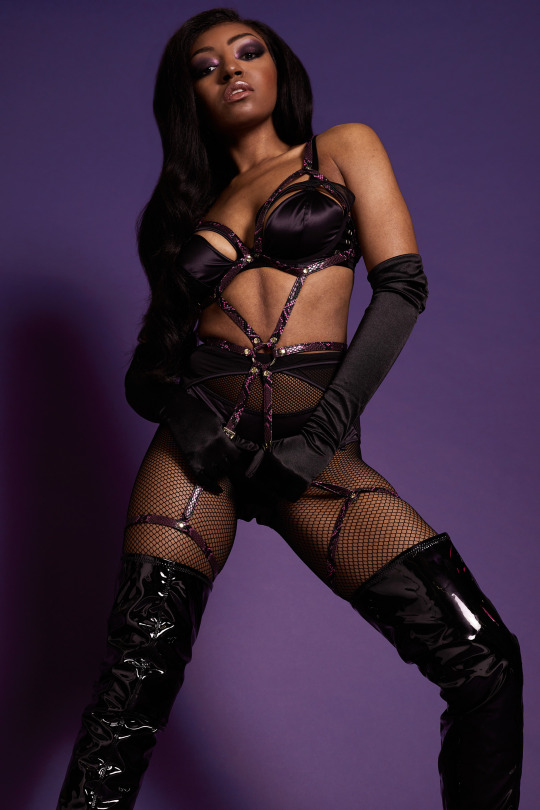
What advice would you give to someone who identifies as asexual and is yet to “come out”?
Other people’s reactions to you aren’t a reflection of you, it’s a reflection of what they don’t know. There’s a chance that people will completely get it and accept it right away, and there’s a chance that they won’t do that, but the latter doesn’t mean that it’s hopeless. It takes some people a while to understand. I also recommend that asexual people yet to come out prepare themselves for doing it often, as it isn’t the kind of thing you just have to do once. It can be helpful to have some resources you relate to on hand, as people sometimes understand and accept asexuality more when they can see that it’s a genuine sexual orientation that other people experience, not just a random word you heard on Tumblr one time. Finally, it’s important to know that coming out isn’t essential. You don’t have to share the intricacies of your sexuality with anyone, not everyone is entitled to that information. If you don’t want to use a label or tell people about it, or if you just want to keep it on a need-to-know basis, that’s your right too.

How do you wish asexual people were more included in events such as Pride?
For me, it isn’t just about including ace flags in the corporate side of Pride, it’s expanding our idea of what Pride is and how the asexual experience relates to it. Asexual people have always been part of Pride, we might not have experienced the same systemic oppression as other identities, but we have the similar experience of having a pathologised, stigmatised identity which has lead to us being taught that there’s something inherently wrong with us. It’s something we have to unlearn and Pride is all about embracing the parts of your sexuality that our society has taught us to be ashamed of. I wish that we could expand our understand of queerness outside of who wants to have sex with who and how. That way, there would be less debate about asexual inclusion and it’d happen organically, and people would put the same effort into representing the asexual community as all the others. Personally, I’d love to be able to do what I did in 2019 when I opened the first asexual bar at London Pride without our inclusion sparking questionable think-pieces about whether or not we should be allowed to be there.

Where do you want to see the Ace community in five years time?
I just hope that we get out of this weird groundhog day that we’ve been in for like…twenty years. Sometimes it feels like we’re making progress, and we are, but at a much slower pace compared to other identities. The way we discuss sexuality has expanded a lot but it hasn’t become very inclusive of asexuality yet. The kind of questions that I get as an activist now are strikingly similar to those I saw asexual activists getting in the early 2000s. We’re still in a 101 introductory stage as if this orientation is some kind of new fad. I hope that in five years time, we’re way past that and asexuality is more normalised. Then we can get into more interesting conversations and incorporate asexuality into how we understand sexuality in general, which will surely benefit everyone.



